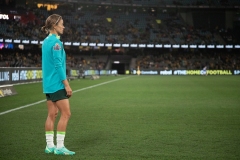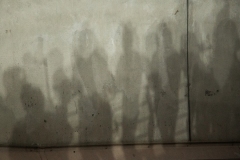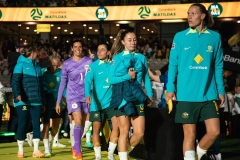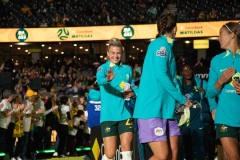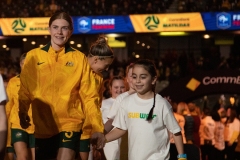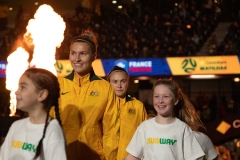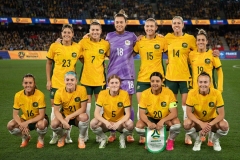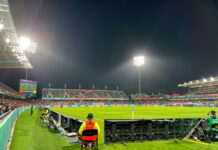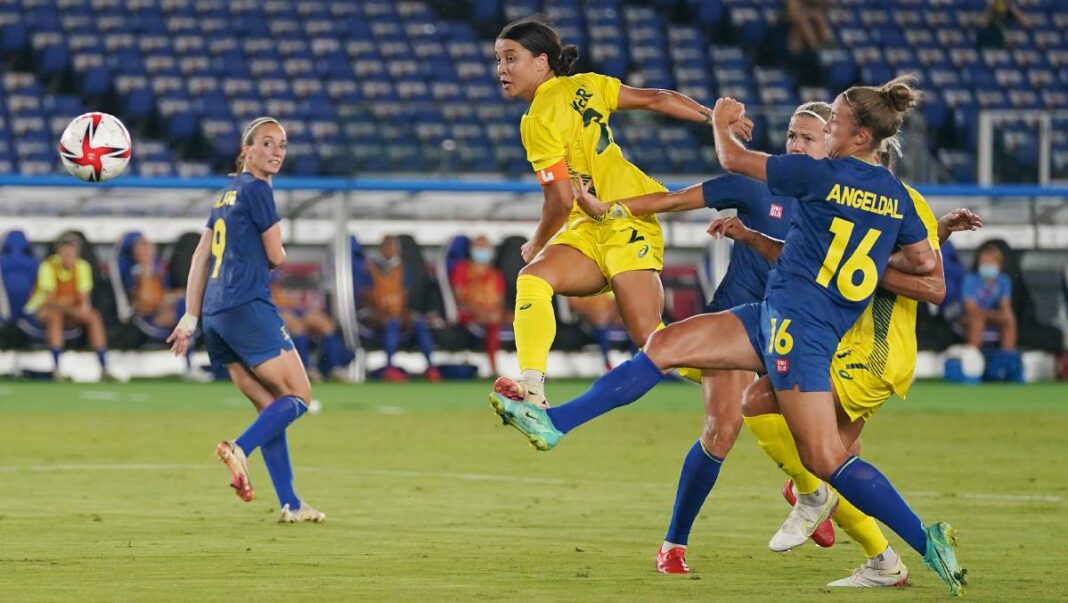

If there was ever an NBA All Star Game equivalent at a World Cup, casual fans may think it would be this: the Third-Place Playoff. But if the 2020* Tokyo Olympics taught us anything, the difference between third and fourth is more than just a medal – it’s history. Having never won a medal at any FIFA tournament, the Matildas will be aiming to go one better than their finish in Japan, emulating the Australian men’s basketball team of two years ago and claiming their own bronze medal – a glimmer of rose gold to compliment the brilliance of their performances this tournament.
Whether the Matildas finish Saturday night with a medal around their neck remains to be seen, but third-place playoff matches are well-known for producing goals. Of the eight matches in Women’s World Cup history, only two have finished scoreless after 90 minutes – Brazil vs Norway in 1999 and England vs Germany in 2015 – with 21 goals across tournament history, compared to 24 in World Cup finals. Incredibly Sweden have featured in three of those play-offs, and their currently-perfect record in bronze medal contests – in addition to collecting silver medals at the past two Olympics – will no doubt be in the back of both teams’ minds as they step out onto the Lang Park turf.
Last Time Out
Australia 4 Sweden 0 – Melbourne / Naarm, 2023
As someone who was in attendance for this match, your valiant author admits that this was not a result he saw coming. Only months out from the World Cup and with a mainly-first-choice line-up, world #2 Sweden were played off the park by the Matildas in front of a 22,000-strong crowd at Swan Street, basking in the glow of a Caitlin Foord brace and goals from Sam Kerr and Mary Fowler.
Likely Starting XIs
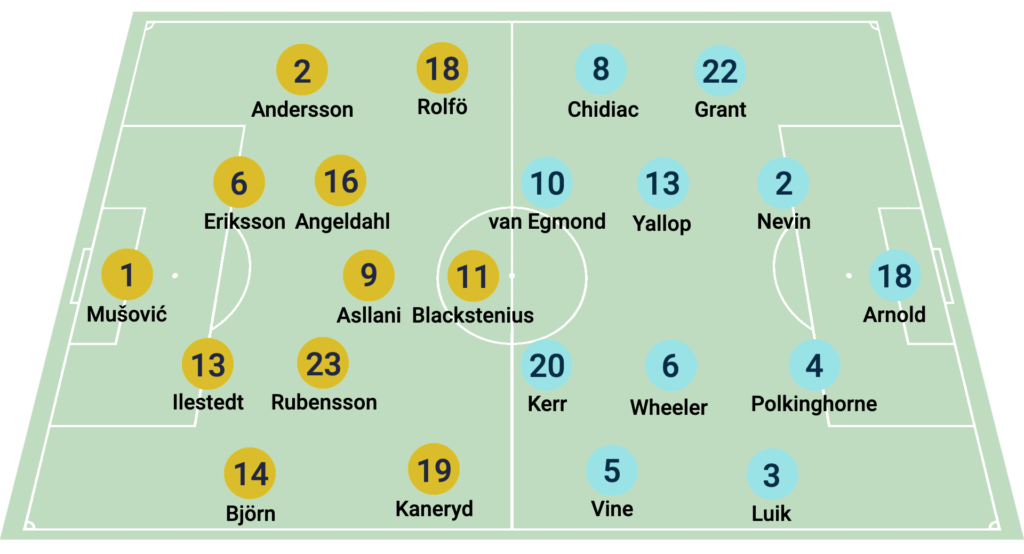
Three Key Battles
Sweden’s Set-Pieces
While we tend to steer away from stereotypes on Beyond90, it’s impossible not to acknowledge those that play out in reality – namely that of the tall, wily Scandinavian standing head-and-shoulders above their opponents. Sweden’s preference to specifically attack the front post at corners with inswinging deliveries and a crowded six-yard box isn’t exactly groundbreaking – this tactic has been used at all levels of football since the introduction of corner kicks 151 years ago – but it’s their consistency and proficiency in its use that has set the Swedes apart at this tournament.
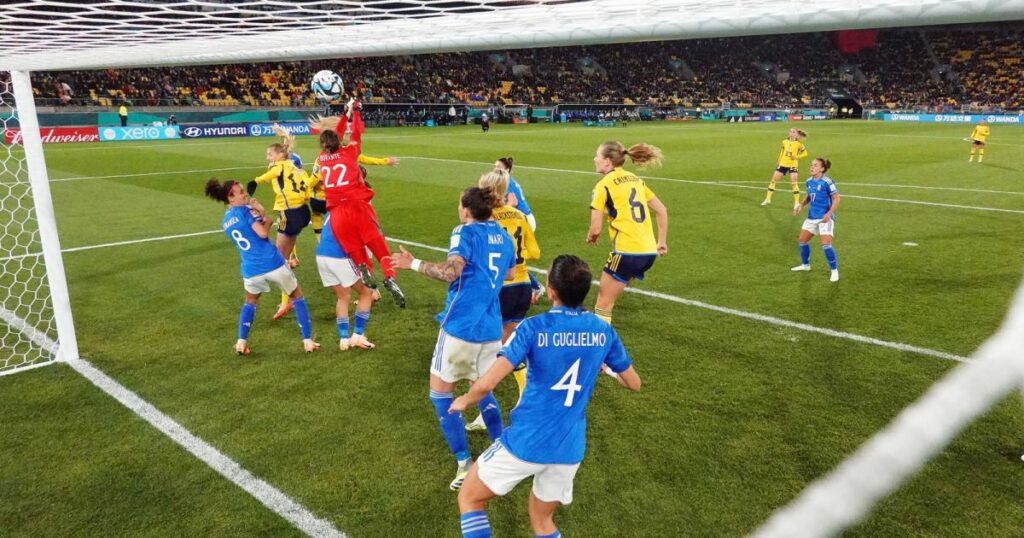

With a median height of 172cm (5’8″) and boasting outfield players such as Lina Hurtig (180cm / 5’11”), Fridolina Rolfö and Amanda Ilestedt (both 178cm / 5’10”), it comes as no surprise that Sweden has targeted set pieces with great success at this tournament, scoring seven of their 12 goals either directly or in broken play immediately following dead-ball situations. In saying this, Australia itself is not short of – pardon the pun – players who excel at set-pieces, either offensively or defensively: Clare Hunt, Steph Catley, Clare Polkinghorne and Alanna Kennedy all stand 170cm (5’7″) or above, while goalkeeper Mackenzie Arnold at 180cm (5’11”) is the side’s tallest player, and has shown on more than one occasion her ability to control her six-yard box from corners and free kicks to defuse her opponents’ attacking opportunities.
Experts in its deployment, Peter Gerhardsson’s tactic has been successful to the point of being highlighted by FIFA in its analysis of the side’s match against Italy. With Kosovare Asllani and Jonna Andersson’s pinpoint deliveries a threat no matter the opposition, the Matildas will have to be wary of both their player-to-player and zonal marking at every opportunity.
Australia’s Squad Rotation
Put simply, the Matildas appeared absolutely cooked against England. Having played 120 minutes against France a few days prior and with almost zero squad rotation, the majority of Tony Gustavsson’s players ran through treacle for 90 minutes, with players such as Katrina Gorry, Caitlin Foord and Hayley Raso visibly tired even before half-time.
Of the 20 outfield players, seven have appeared on-field for fewer than 10 minutes of the 570 played so far, while four – Kyah Simon, Clare Wheeler, Courtney Nevin, and Aivi Luik – have yet to set foot on the pitch. Most notable among that quartet is Kyah Simon, absent for the majority of 2022 and all of 2023 due to a long-term knee injury, and yet selected by Gustavsson ahead of the likes of Emily Gielnik or Chloe Logarzo.
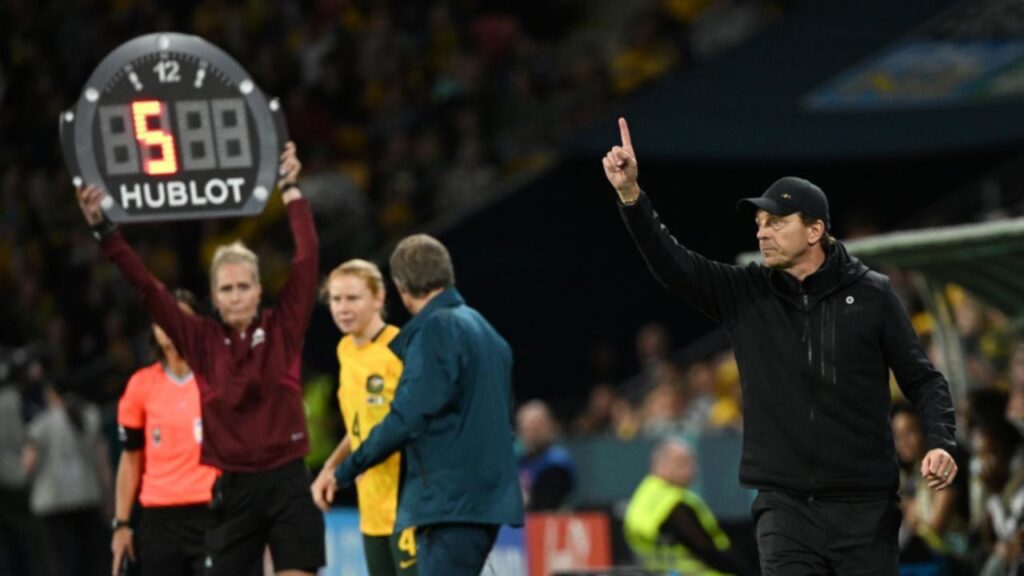

Despite the coaches’ assurances, leaving seven (or six, depending on your opinion) perfectly-capable players near-unused across an entire tournament speaks to a failure of both player management and leadership, and although Gustavsson told journalists weeks ago “we knew [Simon] was going to have limited minutes, but her game-changer quality was we picked her for,” his decision not to deploy her in extra time against France or late on against England has seen those whispers of discontent grow into howls of derision. Whether Simon will feature in the Matildas’ final match of the tournament remains to be seen, but one certainty is that Gustavsson must rotate his squad to guarantee a 90-minute performance.
The Home Ground Advantage
After the rollercoaster ride that has been the Matildas at this FIFA Women’s World Cup 2023, there may well be no better place for the side to finish their tournament than Lang Park in Brisbane / Meanjin. The rambunctious, partisan Cauldron has for decades been the home venue of Queensland rugby league teams, recently joined by the famous Orange Sundays, in which Brisbane’s men’s football team claimed their own slices of history.
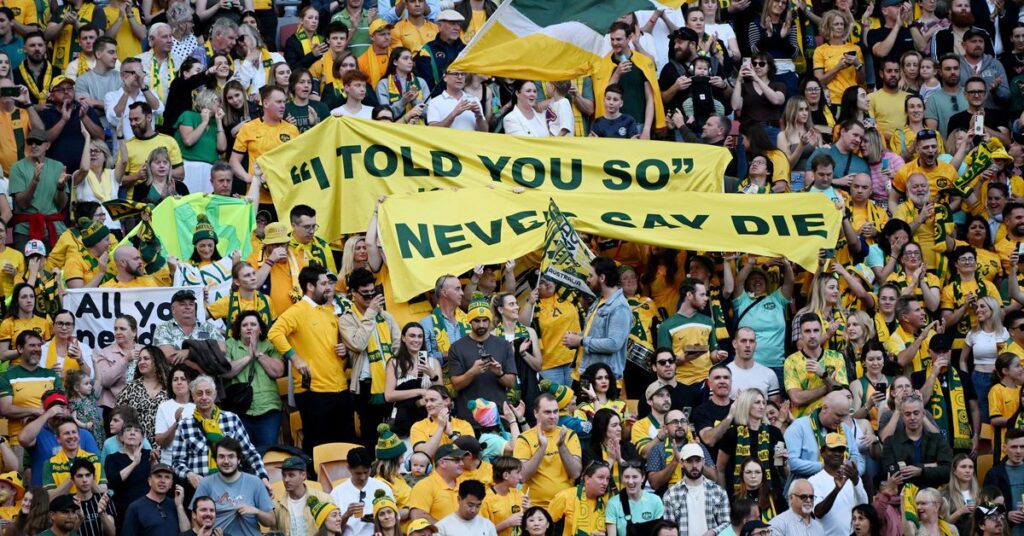

Raucous in defeat against Nigeria and a cacophony in victory against France, Lang Park has borne witness to both sides of the Matildas’ journey at this tournament, both with equal fervour. And fans will again take that famous walk down Caxton Street in flood into the stadium by the thousands, a gold tsunami hoping to see Australia claim its first-ever World Cup medal.
Sweden have been well-supported at this tournament despite having played just a single match in Australia so far – their penalty shootout victory against the United States – and there will no doubt be dozens of Nordic fans in attendance to cheer on the Blågult in Brisbane / Meanjin. Whether those in horned helmets and draped in the blue-and-gold cross can be heard among the thousands of Queenslanders newly enamoured with this Matildas team remains another question entirely.
Prediction
Your intrepid author has made a habit of predicting results with an inaccuracy rivalled only by his own skill with a football, and this match will likely be no different. Both fond of playing in transition but with the tactical nouse to control portions of the game through possession, Sweden and Australia will each face an opponent about whom they know so much but can be certain of so little. With Sam Kerr fit and firing no team can take a clean sheet for granted, and with a first-ever medal on the line Australia will be looking to close out its home tournament on a high, but Sweden – experts in third-place playoffs, having won bronze on three occasions – appear the perfect foil to crash that party.
One thing’s for sure though: this will be a hell of a match.
Australia 2 Sweden 1 AET


